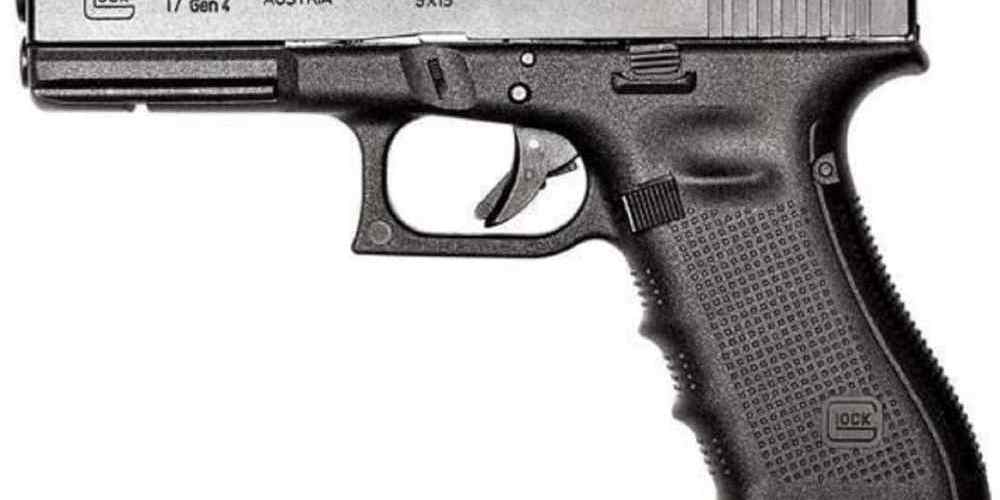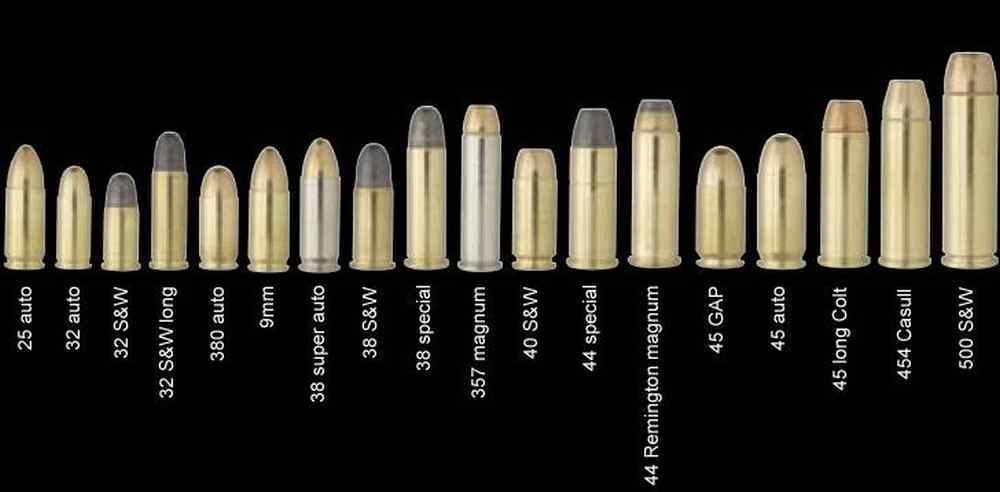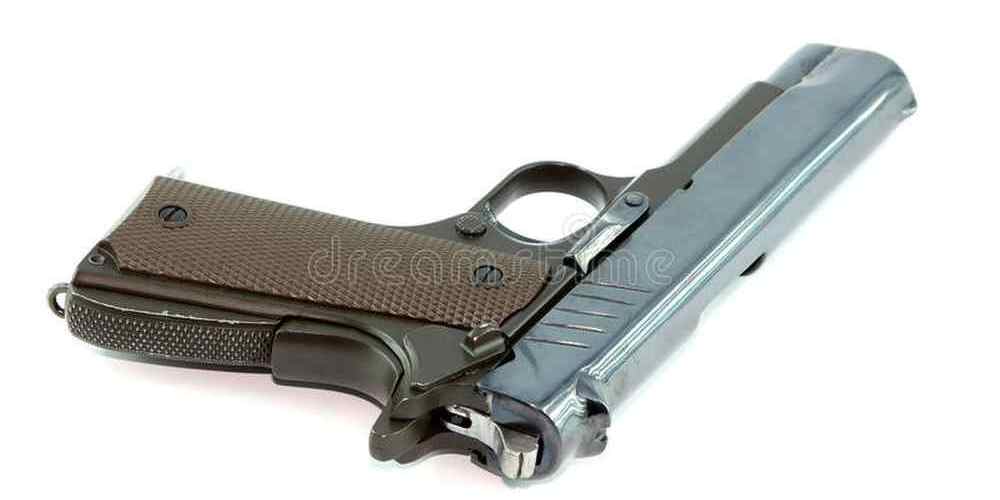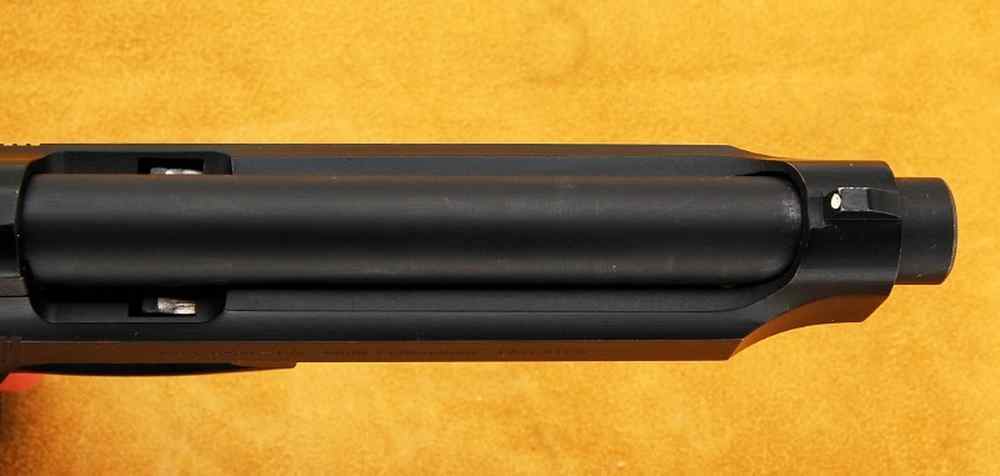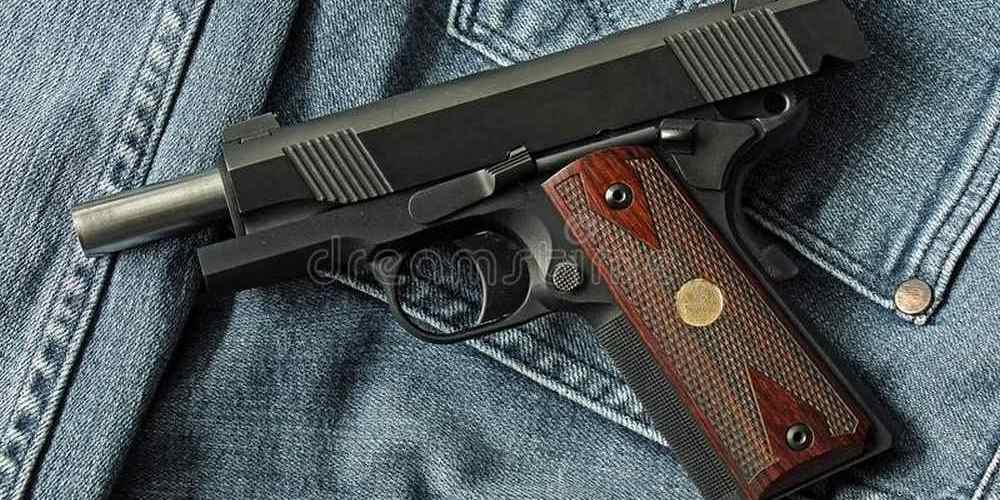“Finding the perfect balance: Understanding how bullet weights impact recoil and accuracy.”
Impact of Bullet Weight on Recoil
When it comes to choosing the right bullet weight for your firearm, there are a few key factors to consider. One of the most important factors to keep in mind is how different bullet weights can affect recoil and accuracy. Understanding the impact of bullet weight on recoil is essential for both experienced shooters and beginners alike.
Bullet weight refers to the actual weight of the projectile that is being fired from a firearm. The weight of a bullet is typically measured in grains, with heavier bullets weighing more grains than lighter ones. The weight of a bullet can have a significant impact on the amount of recoil that is generated when the firearm is discharged.
Heavier bullets generally produce more recoil than lighter bullets. This is because heavier bullets require more force to accelerate them down the barrel of the firearm, which in turn creates more energy that is transferred back into the shooter’s shoulder or hand. On the other hand, lighter bullets require less force to accelerate them down the barrel, resulting in less energy being transferred back into the shooter’s body upon firing.
The amount of recoil that is generated by a particular bullet weight can also be influenced by other factors, such as the type of firearm being used and the specific load that is being fired. For example, a larger caliber firearm will generally produce more recoil than a smaller caliber firearm, regardless of the bullet weight being used. Additionally, certain loads that are specifically designed for reduced recoil can help to mitigate some of the effects of heavy bullet weights.
It’s important to keep in mind that while heavier bullets may produce more recoil, they can also offer certain advantages when it comes to accuracy. Heavier bullets tend to be more stable in flight and are less affected by external factors such as wind or air resistance. This can result in improved accuracy at longer distances, making heavier bullets a popular choice among precision shooters.
On the other hand, lighter bullets may produce less recoil but can be more susceptible to external factors that can affect their trajectory. Lighter bullets may be more easily deflected by wind or other environmental conditions, which can result in decreased accuracy over longer distances. However, lighter bullets are often preferred for applications where speed and flat trajectory are prioritized over long-range accuracy.
In conclusion, understanding how different bullet weights can affect recoil and accuracy is essential for any shooter looking to optimize their performance with a particular firearm. While heavier bullets may produce more recoil, they can offer improved stability and accuracy at longer distances. On the other hand, lighter bullets may produce less recoil but may be more susceptible to external factors that can affect their trajectory. By carefully considering these factors and experimenting with different bullet weights, shooters can find the perfect balance between recoil control and accuracy for their specific needs and preferences.
Accuracy and Bullet Weight Relationship
When it comes to shooting accuracy, many factors come into play, including the weight of the bullet being used. Bullet weight can have a significant impact on both recoil and accuracy, making it an important consideration for shooters looking to improve their marksmanship.
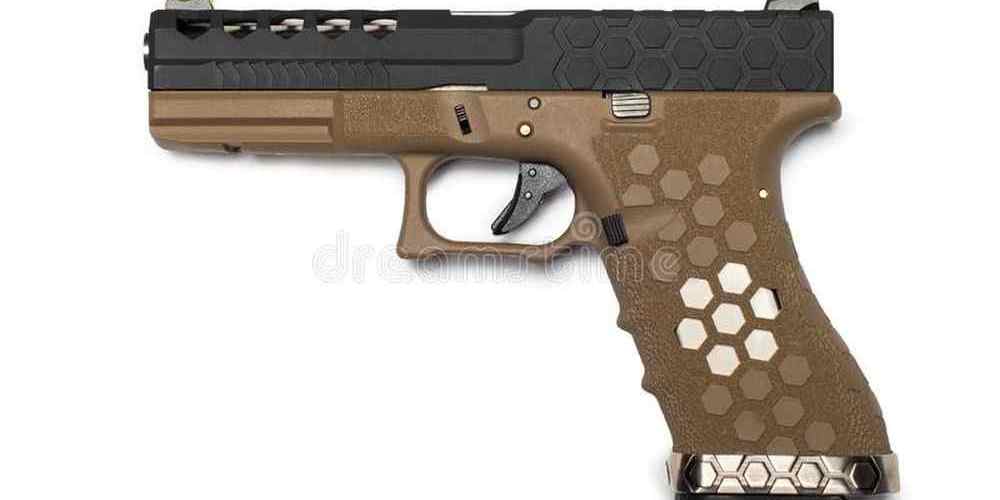
The weight of a bullet refers to the mass of the projectile, typically measured in grains. Heavier bullets generally have more mass and therefore more momentum when fired from a gun. This increased momentum can result in higher levels of recoil, or kickback, when the gun is fired. Lighter bullets, on the other hand, have less mass and therefore less momentum, resulting in lower levels of recoil.
Recoil can affect accuracy by causing the shooter to anticipate the kickback and flinch before pulling the trigger. This can lead to inconsistent shots and decreased precision. By choosing the right bullet weight for their firearm, shooters can minimize recoil and improve their overall accuracy.
In addition to recoil, bullet weight also plays a role in determining the trajectory of the bullet as it travels towards its target. Heavier bullets tend to have a flatter trajectory, meaning they will maintain their course over longer distances without dropping as much as lighter bullets. This can make heavier bullets more accurate at longer ranges.
Conversely, lighter bullets may have a more arched trajectory, causing them to drop more quickly over distance. While this can make them less accurate at longer ranges, lighter bullets may be more suitable for shooting at shorter distances where precision is still important.
Ultimately, the best bullet weight for accuracy will depend on a variety of factors, including the type of firearm being used, the distance to the target, and the shooter’s personal preferences. Experimenting with different bullet weights and loads can help shooters determine which option works best for their specific needs.
For those looking to improve their accuracy with heavier bullets, there are a few tips to keep in mind. Proper grip and stance can help absorb some of the recoil generated by heavier loads, allowing shooters to maintain better control over their aim. Additionally, practicing proper breathing techniques and trigger control can help reduce flinching and improve shot placement.
On the other hand, shooters using lighter bullets may benefit from focusing on consistency in their shooting technique. By maintaining a steady hand and following through with each shot, shooters can compensate for any potential drop in trajectory caused by lighter loads.
In conclusion, bullet weight plays a crucial role in determining both recoil and accuracy when shooting firearms. By understanding how different bullet weights affect these factors, shooters can make informed decisions about which loads are best suited to their needs. Whether using heavier bullets for long-range precision or lighter bullets for close-quarters combat, selecting the right bullet weight can make all the difference in hitting your target with accuracy and confidence.
Recoil Management with Various Bullet Weights
When it comes to shooting firearms, there are many factors that can affect recoil and accuracy. One of the most important factors is the weight of the bullet being fired. Different bullet weights can have a significant impact on how much recoil is felt by the shooter and how accurate their shots are. In this article, we will explore how different bullet weights affect recoil and accuracy, and provide some tips for managing recoil with various bullet weights.
First, let’s talk about what recoil is and why it matters. Recoil is the backward movement of a gun when it is fired. This happens because when a bullet is fired, it creates an equal and opposite force that pushes back against the gun. The amount of recoil felt by the shooter depends on a variety of factors, including the weight of the bullet being fired.
Heavier bullets generally produce more recoil than lighter bullets. This is because heavier bullets have more mass, which means they create more force when they are fired. As a result, shooters may feel more kickback when firing heavier bullets compared to lighter ones.
However, while heavier bullets may produce more recoil, they can also be more accurate in certain situations. Heavier bullets tend to be more stable in flight, which can lead to greater accuracy over longer distances. Additionally, heavier bullets often have higher ballistic coefficients, which means they are less affected by wind and other external factors that can throw off a shot.
On the other hand, lighter bullets typically produce less recoil than heavier bullets. This can make them easier to shoot for some shooters, especially those who are new to shooting or who have difficulty managing recoil. However, lighter bullets may also be less accurate than heavier bullets, particularly at longer distances where wind and other factors come into play.
So how can shooters manage recoil with various bullet weights? One option is to use a muzzle brake or compensator on their firearm. These devices attach to the end of the barrel and redirect some of the gases produced when a bullet is fired, helping to reduce felt recoil. Muzzle brakes and compensators can be particularly effective when shooting heavier bullets that produce more kickback.
Another option for managing recoil is to use a firearm with a longer barrel. Longer barrels tend to have better weight distribution, which can help reduce felt recoil. Additionally, longer barrels often provide better accuracy than shorter barrels, making them a good choice for shooters looking to improve their marksmanship with heavier bullets.
Finally, shooters can also experiment with different types of ammunition to find the right balance of recoil and accuracy for their needs. Some manufacturers offer reduced-recoil loads that are specifically designed to produce less kickback while still delivering good performance downrange. By testing out different types of ammunition with varying bullet weights, shooters can find the perfect combination for their specific shooting goals.
In conclusion, different bullet weights can have a significant impact on recoil and accuracy when shooting firearms. Heavier bullets generally produce more kickback but may be more accurate over longer distances, while lighter bullets produce less recoil but may sacrifice some accuracy. Shooters can manage recoil with various bullet weights by using muzzle brakes or compensators, choosing firearms with longer barrels, and experimenting with different types of ammunition. By understanding how different bullet weights affect recoil and accuracy, shooters can make informed decisions about which loads are best suited for their needs.
Optimal Bullet Weight for Precision Shooting
When it comes to precision shooting, one of the key factors to consider is the weight of the bullet being used. Different bullet weights can have a significant impact on both recoil and accuracy, so it’s important to understand how they interact with each other.
First, let’s talk about recoil. Recoil is the backward movement of a gun when it is fired, caused by the force of the bullet being expelled from the barrel. The weight of the bullet plays a crucial role in determining how much recoil will be generated. In general, heavier bullets produce more recoil than lighter ones. This is because heavier bullets require more force to propel them down the barrel, resulting in a greater pushback on the shooter.
However, it’s not just about how much recoil is produced – the type of recoil can also affect accuracy. For example, a gun that produces sharp, snappy recoil may be harder to control and lead to less accurate shots. On the other hand, a gun that produces a smoother, more manageable recoil will allow for better shot placement.
So how do different bullet weights affect recoil and accuracy? Let’s break it down.
Lighter bullets typically produce less recoil than heavier ones. This is because they require less force to propel them down the barrel. As a result, shooters may find it easier to control their gun and maintain accuracy when using lighter bullets. However, lighter bullets may also be more affected by wind and other environmental factors, leading to less predictable shot placement.
On the other hand, heavier bullets tend to produce more recoil but can offer better stability and accuracy over longer distances. The added weight helps them maintain their trajectory and resist external forces that may push them off course. This makes heavier bullets a popular choice for precision shooting competitions where accuracy is paramount.
Finding the optimal bullet weight for your specific needs requires some experimentation and practice. Start by testing different bullet weights in your firearm and paying attention to how they affect recoil and accuracy. Keep in mind that what works best for one shooter may not necessarily work for another – it’s all about finding what feels most comfortable and effective for you.
In conclusion, the weight of the bullet you choose can have a significant impact on both recoil and accuracy when shooting. Lighter bullets generally produce less recoil but may be more affected by external factors, while heavier bullets offer better stability and accuracy over longer distances but come with increased recoil. Finding the right balance between these factors is key to achieving optimal performance in precision shooting. Experiment with different bullet weights, practice regularly, and pay attention to how they affect your shooting – with time and effort, you’ll find the perfect match for your needs.
Balancing Recoil and Accuracy with Different Bullet Weights
When it comes to shooting firearms, there are many factors that can affect recoil and accuracy. One of the most important factors to consider is the weight of the bullet being used. Different bullet weights can have a significant impact on how a firearm performs, both in terms of recoil and accuracy.
In general, heavier bullets tend to produce more recoil than lighter bullets. This is because heavier bullets have more mass, which means they require more force to accelerate to the same velocity as lighter bullets. When a firearm is fired, the force of the expanding gases propels the bullet down the barrel and out of the muzzle. The force of this acceleration is what causes recoil.
Heavier bullets also tend to have a higher ballistic coefficient, which means they are less affected by external factors such as wind and air resistance. This can result in better long-range accuracy, as heavier bullets are less likely to be deflected off course by these external factors.
On the other hand, lighter bullets tend to produce less recoil than heavier bullets. This is because lighter bullets have less mass, which means they require less force to accelerate to the same velocity as heavier bullets. As a result, firearms that are chambered for lighter bullets will generally have less felt recoil.
Lighter bullets also tend to have a flatter trajectory than heavier bullets, meaning they will drop less over long distances. This can make them easier to shoot accurately at longer ranges, as shooters don’t have to compensate as much for bullet drop.
When it comes to choosing the right bullet weight for your firearm, it’s important to consider both recoil and accuracy. If you’re shooting a high-powered rifle and are concerned about recoil, you may want to opt for a lighter bullet. This will help reduce felt recoil and make shooting more comfortable.
On the other hand, if you’re looking for maximum accuracy at long ranges, you may want to choose a heavier bullet with a high ballistic coefficient. While this may result in more felt recoil, the improved long-range accuracy may be worth it for certain applications.
It’s also worth noting that different firearms may perform differently with different bullet weights. Some firearms may be optimized for a specific bullet weight, while others may be able to shoot a range of bullet weights effectively.
Ultimately, finding the right balance between recoil and accuracy is key when choosing a bullet weight for your firearm. Consider your shooting goals and preferences when selecting a bullet weight, and don’t be afraid to experiment with different weights to see what works best for you.
In conclusion, different bullet weights can have a significant impact on both recoil and accuracy when shooting firearms. Heavier bullets tend to produce more felt recoil but may offer better long-range accuracy, while lighter bullets produce less felt recoil and may have a flatter trajectory at longer ranges. Finding the right balance between these factors is key when selecting a bullet weight for your firearm. Experiment with different weights and find what works best for your shooting style and goals.




